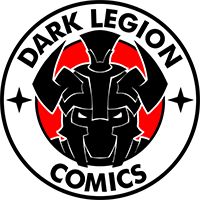Christmas Ghost Stories

Americans are an odd bunch, even those of us holding on to our great heritage get a lot of that heritage wrong.
Take a look at Terry Pratchett’s Hogfather. Americans can identify with the familiar aspects of the story, but there are others that feel like they would be more at home at Halloween. There are strong undertones of the eerie and the uncanny throughout the book. That there is a darker reason that children are tucked into their beds with care, and blankets pulled up to their eyes, which watch the shadows in their rooms uneasily.
While these things are very much at home on the other side of the ocean, they feel off to us here. Americans love Dickens’s A Christmas Carol.* Yet we sweep Charles Dickens’s other Christmas ghost stories, like The Signalman, under the rug.
Here’s the thing, it used to be the same way in America.
“When I returned to the drawing-room, I found the company seated around the fire, listening to the parson, who was deeply ensconced in a high-backed oaken chair, the work of some cunning artificer of yore, which had been brought from the library for his particular accommodation. From this venerable piece of furniture, with which his shadowy figure and dark weazen face so admirably accorded, he was dealing forth strange accounts of popular superstitions and legends of the surrounding country, with which he had become acquainted in the course of his antiquarian researches.”
-Old Christmas by Washington Irving
“Tales of the glories and scary ghost stories of Christmases long, long ago”
-It’s the Most Wonderful Time of the Year
It goes back a long way. This sense that while a new door to a bright place warm with hope has opened, an old door leading to some place eternally cold and black hasn’t quite closed yet.
A lot of the very early missionaries of the Church knew perfectly well that one of the hardest things to do in the conversion process was getting native peoples to give up their traditional festivals. So, they didn’t try. “Go ahead and party your face off but you are no longer celebrating the Samhain, you’re celebrating All Saints Day.
And. No. More. Human. Sacrifices. Your new Lord and Savior took that bullet for everyone, so it’s not optional. You can throw rocks at the guy who drew the short straw, we’re going to pretend we don’t care about that, but no killing him.”
Pratchett may have been onto something with the Hogfather. The Winter Solstice lands a few days short of Christmas, the fact that the days had been getting noticeably colder and shorter, but the sun would not be setting forever was a cause for great celebration. But in the really old days, it was a time to make an offering that would ensure that that would happen.
It’s not sacrifice if you don’t give up what you cherish most, is it?
Pratchett surmised that the red in Father Christmas’ coat used to stand for blood upon the snow.
I suspect the big reason we Americans misplaced these traditions was that for a few decades, it was illegal to celebrate Christmas.
No, I’m not kidding.
It wasn’t just Puritans being puritanical about parties either. It had a lot more to do with truly impressive property destruction that was taking place due to drunken revelry every 25th of December, all to celebrate the birth of our Lord and Savior. Fires are hard to fight in winter because the water is mostly frozen. I know it doesn’t show now, but America was one big biker bar when we started out.
So, it was banned for a long time. What brought back the celebrations in America was fiction.
The stories by Washington Irving romanticized the more genteel Christmas celebrations from times past while glossing over the violent drink orgies.
Eventually, the spooky parts of Christmas were exported to Halloween, and the celebratory parts of All Hallows’ Eve were transferred to Christmas as harvest became much less a community effort and more industrialized. About the time the Harvest Home celebrations died out, the process was complete.
This is why I regard the loss of the Christmas ghost story as a substantial debasement of American culture. It went hand in hand with the degradation of local communities.
Which I suspect was the whole point.
Okay, I’m done here.
*A little too much if you ask me. There are better than a hundred versions of the story on IMDB, and that’s not including one-off TV episodes.

